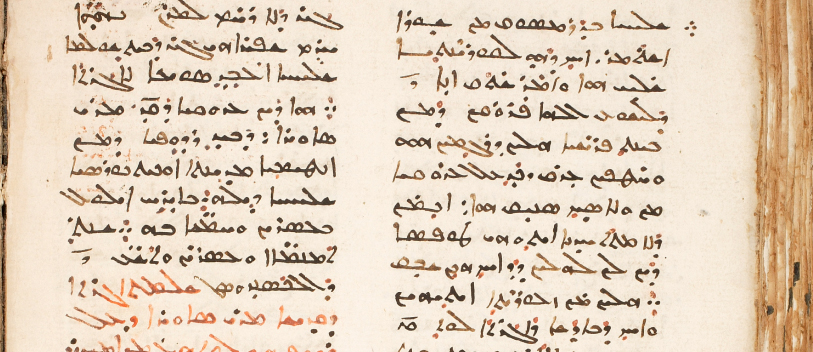
On the munificence of the gift of the pious emperor (Anastasius), who had remitted some remaining contributions and taxes from the Public Treasury.
1 Vast and difficult to scrutinize is the depth of the Economy, which the Word of God and the Saviour Jesus Christ manifested with regard to our race by his coming in the flesh. But this seems so obvious to us that we glorify only him as a benefactor, that we recognize him as the creator, that we then worship him as the one who, after our creation, formed us again for perfection, that we keep the eyes of our spirit turned downwards, and that we silently glorify him who is above all thought and word.
2 Who would not be astonished to see the king of the armies on high paying taxes to the kings of the earth and allowing himself to be imposed upon with the others, as subject to taxes and to the rates, and something in truth even more remarkable, when he was only a small child in the womb of the Virgin, the Mother of God. In truth, this seems, in any case, to be a gesture of humility and to conform to the rules of his annihilation and voluntary poverty. Because the fact of being subjected to the tax seems undoubtedly very human, according to the very fact that it is visible, and yet it is totally appropriate to God.
3 For he who is in the form of God, and because of his love, took the form of a slave, in that he became man without change, for these words, “He is” make known the immutability of the divine essence and the immutability arising from what he is and that he continually exists – when he wanted to abolish for us the bondage of sin, when he is symbolically taxed as one of those who are in submission, when he cuts the bonds of this servitude and tears up the sentence (brought) against our race, who was the one who could effect this redress? He who by nature is free. And who is he who by nature is free? The only begotten Son and the Word of God, ….
(Gap of a front and back folio)
20 … for food he has (?) … he looks at the old cloak that covers him, he wants to take it to the merchant, in order to satisfy his belly in distress, he even thinks of selling his children as slaves and of obtaining food with the price of what is his own nature: the arrogant moneylender sits, nastier and more cruel than any wild beast, insulting this unfortunate, holding the needy in derision as if they did not exist. He moves his fingers, calculates the interest, calculates the maturity of the note, reads it aloud and threatens to deliver the unfortunate man to prison and to make him suffer cruel and unbearable (torments), if he does not pay his debt immediately and quickly.
21 Or sometimes, when he is a poor stranger, and when it is the height of the winter season, he expels him from his house, drives him away and immediately demands that he be paid. But immediately this unfortunate, stiffened by the cold and seeing that the poor and vile clothes he possessed and that his miserable rags, worth only a few obols, are thrown in the public square, and that his debt is demanded and that he does not have anything to pay it and that he is in under pressure on all sides, lets hot tears fall upon his sufferings and there is no one to put an end to his poverty.
22 How then, O man, will you say to God in all confidence, deliver me! when you have not forgiven anything, and when you owe many debts and have myriads of sins, and when you have shown such regard to your fellow man and to your brother, the harshness of which shows a heart of stone? But why am I speaking about a debt. Very often it is with a word of insult or derision or some other very contemptible feeling whatever it is, that we do not agree to forgive our neighbour. So, as if we had been disrespected in regard to our honour and suffered all evils, we whet the sting of anger like scorpions, and, like camels, we keep that anger in our minds and we do not cease to return evil in place of this contempt. While we have been hurt in words only, as we affirm, we ourselves do evil in actions.
23 How then can we confidently say these words, Heal us? Because – I will say the same thing over and over again. How is it right that we obtain what we ourselves have not allowed our neighbour to participate in? This is truly what a wise man said with astonishment: While he himself is flesh, he keeps guard over his anger and asks the Lord for healing.
24 But let us remember the day of judgment. While we need mercy, let us gain ourselves mercy in advance. Let us forgive liberally, in order to obtain a more liberal forgiveness. Thanks to the gift of the pious emperor, let us be converted to charity. Let us pray for him and for the Empress who makes peace and who loves Christ, saying; Save, O Lord, your king, and save her also, and hear us in the day that we call on you, for to you is the praise and the glory and the power, now and always and in the ages of the ages. centuries. Amen!
End of homily XIII.
